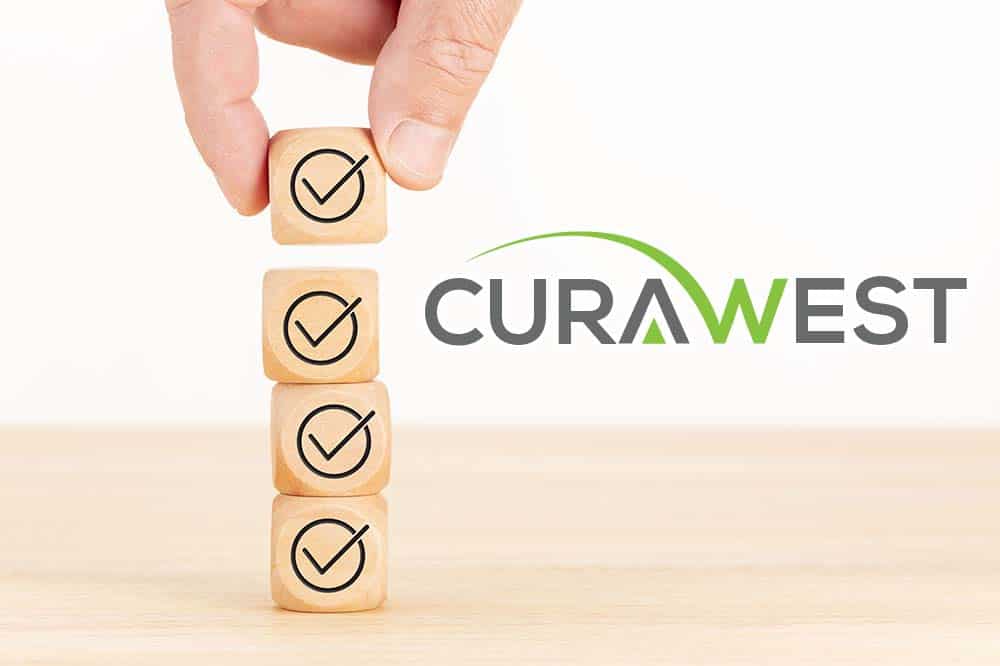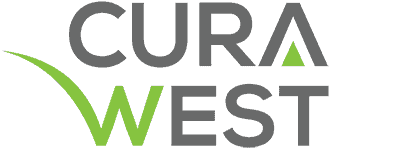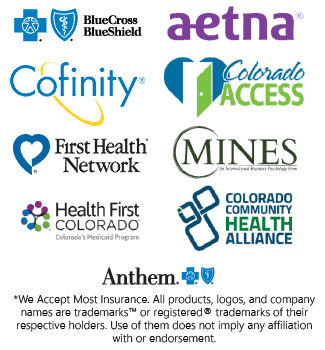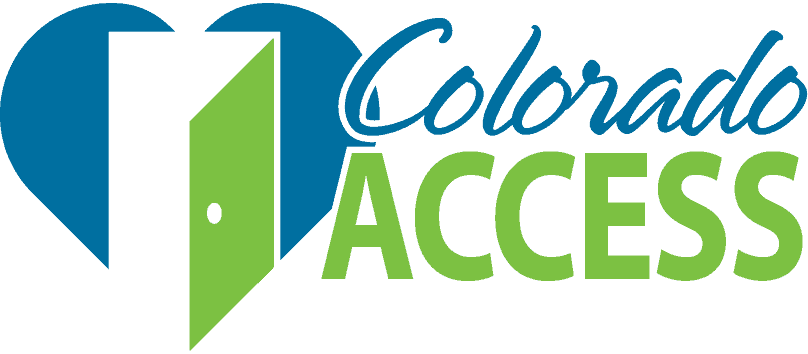If you or a loved one is struggling with alcohol or drug addiction, seeking treatment at a reputable rehab facility may be the best solution to help you achieve lasting recovery.
At Curawest, the treatment process begins with an intake and assessment process that evaluates your unique circumstances, substance abuse history, physical and mental health status, and other factors that may affect your treatment. This information is used to develop a personalized treatment plan that addresses your needs and goals.
For those physically dependent on drugs or alcohol, Curawest provides a medically supervised detoxification process to manage withdrawal symptoms and help you achieve abstinence. After detoxification, you will receive therapy tailored to your individual needs, which may involve a combination of individual counseling, group therapy, and family therapy. Therapy approaches such as Cognitive-behavioral therapy (CBT) and Motivational Interviewing (MI) may help you progress toward recovery.
Curawest also provides medication-assisted treatment (MAT) to help manage withdrawal symptoms or reduce cravings for drugs or alcohol. Aftercare planning is an essential component of the treatment process. It includes preparing you for life after rehab by providing referrals to support groups such as Alcoholics Anonymous (AA) or Narcotics Anonymous (NA), ongoing therapy or counseling, and other resources to help you maintain your recovery.
Throughout the treatment process, you will receive support from a team of medical professionals, therapists, and support staff dedicated to helping you achieve lasting recovery from drug addiction. By choosing Curawest, you can access comprehensive care tailored to your unique needs, helping you achieve the best possible outcomes in your recovery journey.
If you or someone you love has a substance use disorder, Curawest is available to help. We are dedicated to providing the most comprehensive and individualized medically monitored detox program. To learn more about our programs, contact us today.
What Is the Treatment Process During Drug Rehab?
When a person enters a rehab facility, they typically go through several steps and levels of care to achieve lasting recovery from drug addiction. Here’s a timeline of what to expect during a typical rehab experience:
- Intake and Assessment – Upon arrival, the person undergoes an intake and assessment process where medical and mental health professionals evaluate their substance abuse history, physical and mental health status, and other relevant factors. This assessment helps create a personalized treatment plan that addresses the individual’s needs and goals.
- Detoxification – Depending on the individual’s substance abuse history and physical dependence, a medically supervised detoxification process may be necessary to manage withdrawal symptoms and promote abstinence.
- Residential/Inpatient Treatment – Once the individual has completed detoxification, they may enter a residential/inpatient treatment program. This level of care typically involves 24/7 medical and therapeutic support and individual and group therapy sessions to address the underlying issues contributing to addiction.
- Partial Hospitalization Program (PHP) – After completing the residential/inpatient treatment program, the individual may transition to a PHP. This level of care involves receiving treatment during the day and returning home or to a sober living facility at night. The person continues receiving medical and therapeutic support with more flexibility and autonomy.
- Intensive Outpatient Program (IOP) – The next step is usually an IOP, where the individual receives treatment a few times a week and returns home or to a sober living facility. This level of care allows for even more independence and flexibility while still receiving necessary support.
- Outpatient Treatment – The final stage of rehab is outpatient treatment, which typically involves weekly or bi-weekly therapy sessions and support group meetings. The individual is encouraged to continue attending support groups and therapy sessions after completing formal treatment to maintain recovery.
What Is Drug Rehabilitation?
Drug rehabilitation, or drug rehab, is a treatment program designed to help individuals overcome drug addiction and maintain lasting recovery. It involves a comprehensive approach to address addiction’s physical, emotional, and psychological aspects.
The main goal of drug rehabilitation is to help individuals achieve abstinence from drugs or alcohol, learn coping skills to prevent relapse, and regain control of their lives. This involves a combination of therapy, counseling, medication-assisted treatment, and support groups to help individuals address the underlying issues contributing to their addiction.
Curawest stands out as a top-tier drug rehab facility due to its comprehensive approach to treatment, which includes evidence-based therapies and treatments tailored to meet each client’s needs. The facility is staffed by a team of experienced medical professionals, therapists, and support staff who provide 24/7 care and support to clients. The center offers a range of levels of care, including inpatient and outpatient programs and various amenities to promote wellness during treatment. Curawest’s dedication to helping clients achieve lasting recovery from addiction makes it a leading drug rehab facility.
Understanding the Treatment & Recovery Process for Addiction
The treatment and recovery process for addiction typically involves several stages and a combination of evidence-based therapies and treatments. It is a comprehensive approach designed to address addiction’s physical, emotional, and psychological aspects and support individuals in achieving lasting recovery.
The first step in the treatment and recovery process is often detoxification, which involves the removal of harmful substances from the body. This can be challenging, and medical supervision may be necessary to manage withdrawal symptoms and ensure the individual’s safety.
After detoxification, individuals typically enter a treatment program that includes therapy, counseling, medication-assisted treatment, and support groups. This treatment is tailored to meet the individual’s specific needs and goals, and it may consist of cognitive-behavioral therapy, family therapy, motivational interviewing, and other evidence-based therapies.
During treatment, individuals may also participate in support groups, such as 12-step programs, to connect with others who have gone through similar experiences and receive ongoing support and guidance.
As individuals progress through the treatment and recovery process, they may transition to different levels of care, such as outpatient treatment or sober living facilities, as they regain control of their lives and work towards lasting recovery.
Initial Evaluation and Assessment
The initial evaluation and assessment help professionals develop individualized treatment plans tailored to the individual’s needs and goals. It typically includes a review of the individual’s medical history, a physical exam, and laboratory tests to assess potential medical complications related to substance use.
In addition to the medical evaluation, behavioral health professionals will thoroughly assess the individual’s emotional and psychological health, including their mental health history and any co-occurring disorders. This information helps professionals determine the appropriate level of care and evidence-based therapies needed to support the individual’s recovery.
The initial evaluation and assessment process may also involve discussions about the individual’s social support system, including family, friends, and other resources available to support their recovery. This information helps professionals develop a comprehensive treatment plan that addresses all aspects of the individual’s life and provides ongoing support throughout recovery.
Residential Inpatient Treatment or Outpatient Care Options
Residential inpatient treatment and outpatient care are two options for addiction treatment, each with unique advantages and considerations.
Residential inpatient treatment involves staying at a treatment facility 24/7 for a designated period, typically lasting between 30 and 90 days. During this time, individuals receive intensive therapy and support from a team of medical and behavioral health professionals. This level of care benefits individuals who require high support and structure to achieve and maintain sobriety.
On the other hand, outpatient care involves receiving treatment part-time while still living at home. Outpatient care may include therapy, counseling, and medication-assisted treatment and typically involves regularly scheduled appointments at a treatment center. This level of care benefits individuals with a strong support system at home and does not require intensive, around-the-clock care.
Deciding between residential inpatient treatment and outpatient care depends on several factors, including the individual’s addiction level, support system, and daily responsibilities. Residential inpatient treatment is often recommended for individuals with severe addiction or co-occurring disorders. At the same time, outpatient care may be more suitable for individuals with less severe addiction or strong social support.
The Detox Process
During detox, individuals may experience physical and psychological withdrawal symptoms ranging from mild to severe. Symptoms may include nausea, vomiting, sweating, tremors, anxiety, and depression. Individuals may sometimes experience more severe symptoms, such as seizures or hallucinations.
To manage withdrawal symptoms and ensure a safe detoxification process, medical professionals may administer medication-assisted treatment or other interventions, such as IV fluids and electrolytes, to help manage symptoms and prevent complications.
The duration of the detox process can vary depending on the individual’s substance use history and the severity of their addiction. Some individuals may complete detox in a few days, while others may require several weeks of detoxification.
Medication Management & Medical Detox
During medical detox, medications are often used to help manage withdrawal symptoms and ease the transition to sobriety. Examples of drugs that may be used include benzodiazepines, commonly used to treat alcohol and sedative/hypnotic withdrawal symptoms, and methadone, used to manage withdrawal symptoms from opioids. The specific types of medications given will depend on the individual’s substance use history and medical history.
Counseling & Therapy Sessions
Counseling and therapy sessions may be conducted in individual or group settings and can be tailored to meet the unique needs of each individual. Therapy sessions may focus on various issues, including stress management, coping skills, relapse prevention, and addressing past trauma or mental health disorders.
Cognitive-behavioral therapy (CBT) is a standard therapy used in addiction treatment. It helps individuals identify and change negative thoughts and behaviors that may contribute to their addiction. Other forms of therapy that may be used in addiction treatment include motivational interviewing, dialectical behavior therapy (DBT), and family therapy.
Group Support Sessions
A therapist or counselor may lead group support sessions and typically involve a group of individuals who are all working towards recovery. Group support sessions may focus on various topics, including coping skills, relapse prevention, and peer support.
One of the most well-known group support programs for addiction recovery is Alcoholics Anonymous (AA), which uses a 12-step program to help individuals achieve and maintain sobriety. Other group support programs include Narcotics Anonymous (NA), SMART Recovery, and Celebrate Recovery.
In addition to providing emotional support and accountability, group support sessions can help individuals develop social skills, build healthy relationships, and learn from the experiences of others recovering.
Our Drug & Alcohol Detox Services Include
Family Participation
Family participation may involve family therapy sessions, education about addiction and recovery, and support groups such as Al-Anon, specifically designed for family members and loved ones of individuals struggling with addiction.
Family therapy sessions may focus on various issues, including communication skills, healthy boundaries, and addressing past trauma or conflict. Family therapy can help families rebuild trust, improve communication, and develop effective coping strategies for managing the challenges of addiction and recovery.
Involving families in the addiction treatment process can also help them understand the nature of addiction and how to support their loved one’s ongoing recovery. Educating families about addiction and recovery can provide their loved ones with the emotional support and accountability they need to maintain sobriety.
Preparing for Aftercare
Aftercare planning typically involves working with a therapist or counselor to create a personalized plan for ongoing support and care. This may include attending 12-step meetings or other support groups, continuing therapy or counseling, and developing healthy coping strategies for managing triggers and cravings.
In addition to traditional aftercare options, many addiction treatment programs offer transitional housing or sober living facilities to help individuals transition from a structured treatment environment to independent living.
Other important components of aftercare planning may include employment or educational goals, financial planning, and building a support network of friends, family, and peers who can provide ongoing support and encouragement.
Nutritional Guidance
Nutritional guidance in addiction treatment may involve working with a registered dietitian or nutritionist to develop a personalized nutrition plan that meets the individual’s unique needs and addresses any underlying health issues.
Nutritional guidance may also include education about the importance of proper nutrition for overall health and well-being and how certain foods and nutrients can support addiction recovery.
In addition to improving physical health, proper nutrition can positively impact mental health and emotional well-being. A healthy and balanced diet can improve mood, reduce stress and anxiety, and support cognitive function.
Holistic Treatment Approaches
Holistic treatment approaches recognize that addiction is a complex condition that affects every aspect of a person’s life and that treating addiction requires a comprehensive and integrated approach.
Holistic treatment approaches may involve a range of therapies and techniques, including mindfulness meditation, yoga, acupuncture, massage therapy, and art or music therapy.
These approaches aim to improve overall well-being by reducing stress, promoting relaxation, and enhancing emotional and mental health. By addressing the underlying causes of addiction and promoting overall wellness, holistic treatment approaches can help individuals achieve lasting recovery.
Spiritual Care Programs
Spirituality can mean different things to different people. For people in addiction treatment, spirituality often involves connecting with a higher power, finding inner peace and serenity, and developing a sense of purpose and meaning in life.
Spiritual care programs may include various activities and therapies, such as meditation, prayer, mindfulness practices, yoga, and other spiritual or religious expression forms.
These programs aim to provide individuals with a safe and supportive space to explore their spirituality, connect with others who share their beliefs, and develop a deeper understanding of themselves and their place in the world.
Research has shown that spiritual care programs can positively impact addiction recovery outcomes by promoting a greater sense of purpose and meaning in life, reducing stress and anxiety, and enhancing overall well-being.
Relapse Prevention Strategies
Relapse prevention strategies are an important part of addiction treatment and recovery. These strategies aim to help individuals identify and manage triggers and other factors that may increase the risk of relapse and to develop skills and strategies for maintaining sobriety over the long term.
Some common relapse prevention strategies include:
- Developing a Support System – Building a strong support network of friends, family, peers, and healthcare professionals can provide individuals with the encouragement, motivation, and accountability they need to stay sober.
- Identifying and Avoiding Triggers – Understanding the people, places, and situations that may trigger cravings or other negative emotions can help individuals avoid these triggers and manage their responses.
- Practicing Self-Care – Prioritizing self-care activities such as exercise, healthy eating, and adequate sleep can help individuals manage stress and other emotions that may increase the risk of relapse.
- Developing Coping Skills – Learning and practicing healthy coping skills, such as mindfulness, relaxation techniques, or cognitive-behavioral therapy (CBT), can help individuals manage cravings, anxiety, and other negative emotions.
- Setting Realistic Goals – Setting achievable goals for recovery and other areas of life can help individuals maintain motivation and focus and avoid becoming overwhelmed by the challenges of sobriety.
Long-Term Sobriety
Maintaining long-term sobriety after addiction treatment is a challenging but achievable goal. It requires individuals to commit to a new way of life that prioritizes self-care, self-awareness, and healthy coping mechanisms.
One of the most important aspects of long-term sobriety is the development of healthy coping mechanisms. This means learning to manage stress, negative emotions, and other triggers without relying on drugs or alcohol. Regular exercise, practicing mindfulness or meditation, and participating in support groups are just a few examples of healthy coping mechanisms that can help individuals maintain their sobriety over time.
Another critical factor in achieving long-term sobriety is a strong support system. This can include family members, friends, and peers in recovery who provide encouragement, accountability, and understanding. Seeking support from healthcare professionals, such as therapists or addiction specialists, can also be invaluable in maintaining long-term sobriety.
Finally, individuals in recovery must remain aware of the risks of relapse and take proactive steps to avoid it. This can involve continuing therapy or counseling, attending support group meetings, and seeking help. With ongoing commitment and support, individuals in recovery can achieve long-term sobriety and enjoy a healthier, more fulfilling life.
Begin Healing Now!
Have A Call With One Of Our Treatment Advisors
Don’t Suffer Any Longer
Contact Us to Learn More
At Curawest, we remain dedicated to providing our clients with a comprehensive program of medically assisted detox that focuses on much more than physical stabilization. In addition to emphasizing physical recovery, we tackle mental, emotional, and spiritual well-being. While prioritizing a safe and comfortable drug withdrawal, we offer individual, group, and family therapy sessions, case management services, relapse prevention training, and aftercare planning.
Contact us today if you or your loved one is ready to begin an entirely new way of life and commit to long-term recovery. As soon as you call, we start developing a plan of action that begins with an initial pre-assessment. This assessment helps us determine the most appropriate level of care for each unique case. We identify potential coverage options if our medically monitored detox program is a good fit. We work closely with most major regional and national insurance providers. Contact us today for a free, no-obligation insurance benefit check.
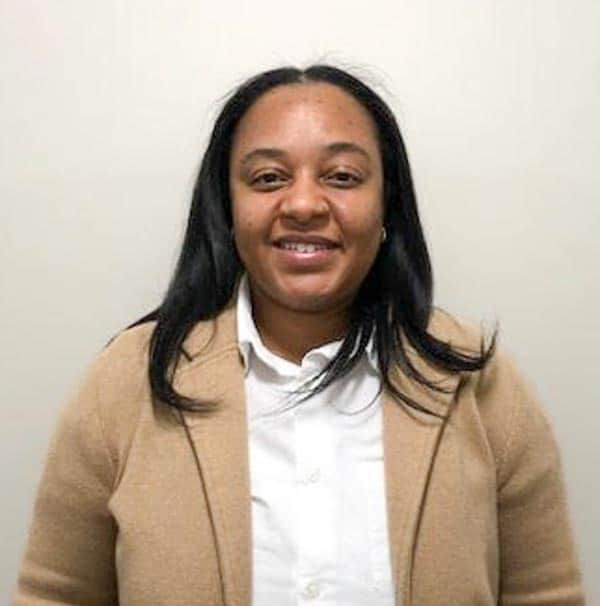
Reviewed for accuracy by:
Jasmine Billups
LPC-S
Jasmine has worked in the mental health field for over 18 years. She earned her B.A. in Psychology with a Minor in Child and Family Relations from North Carolina Central University, and her M.A. in Mental Health Counseling from Argosy University. Jasmine is a Licensed Professional Counselor Supervisor and has specialized in addiction for over 10 years.






